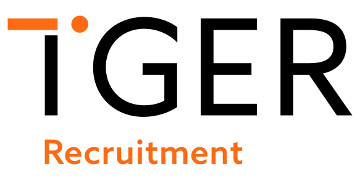On 24 January Hladczuk shared the following on Twitter:
Work-life balance in your 20s is an easy way to guarantee a mediocre career.
— Chris Hladczuk (@chrishlad) January 24, 2023
His comment has since been picked up across other social media sites causing a stir among work/life balance advocates, so we put the question to the HR community.
Work/life balance:
Work/life balance is actually about work and love
Why we need work/life blend, not work/life balance
Four-day work week doesn't have to be a headache
Katie Winstanley, HR director of engineering recruitment company Morson Group, was HR Future Leader of the Year in the 2021 HR Excellence Awards. Since then, she has graduated her position at Morson Group, becoming HRD in 2022 at the age of 27.
She told HR magazine she would be lying if she said she had managed to balance her life perfectly in that time.
“The truth is, that has been incredibly hard. There have been tears along the way and there have been long periods where I have had very little work/life balance which of course, takes its toll. I have missed family birthdays, dinners with boyfriends, Christmas day meals, nights out with my friends along with other sacrifices, all in pursuit of my personal goal.
“I have been fortunate enough that the people around me understand what is important to me – and they are very understanding. That doesn’t mean they’re always happy about it, but they do understand. [...]
“I believe that it comes down to your value system and understanding what you priorities are. I am adult enough acknowledge and recognise that sometimes, I prioritise work at the expense of other things. I recognise that that is my choice, with choices come consequences. I realise that I have to be willing to accept them.”
Ben Towers, co-founder of mental wellbeing app HappI, has also found success at a young age. But he told HR magazine the idea of there being a necessary trade-off between the professional and personal lives was flawed.
He said: “Being 24 years old myself and a workaholic, I do see the massive advantages of hard work and the opportunities it gives me. I would also say that being in your 20s, you typically have the energy to do this – but you cannot prioritise it over your wellbeing. You need to make time for digital detox, and wellbeing activities like meditation.
“The idea you will have a mediocre career [if you make time for your personal life] is not true. There are so many people who have done phenomenally well, and not had to sacrifice their work/life balance. There are also many people who have sacrificed it, and now regret that they did so.
"In short, I agree that if you want to start a company, then your 20s is a great time to make the commitment, but I do not agree that it should ever come at the sacrifice of your wellbeing.”
Perry Timms, founder of consultancy PTHR and HR Most Influential Thinker 2022, said that the glamorisation of overwork was unhelpful.
Speaking to HR magazine, he said: “Let's not conflate working all-nighters and ‘fast paced environment’ job ads as the only way to show you work hard. The Japanese have the term ‘karoshi’ meaning you work yourself to a premature death. Not much hustling going on once you've popped your mortal coil.
“So I'd start from the burnout figures and work back from there. That's on the rise. I'd then go to the trends on how many hours we actually work. That's on a declining trajectory.
“From someone who loves what I do for a living, this still feels more crass than class. This kind of comment is a glorification of the cult of work, not the character-building extension of who you are.”
Shakil Butt, founder of consultancy HR Hero for Hire, told HR magazine that however hard people want to work during office hours, time must be put aside to switch off.
The proliferation of working from home has however blurred boundaries between work and home. He said: “The constant demand for your attention has contributed to the rising cases of stress and mental health issues we are seeing in every industry and sector.
“Work needs to be reimagined, role-modelled from the top with permission to replicate positive behaviours, such as switching off work phones out of hours, or whilst on leave, so a person really can spend the time they need away from work to rest and recharge with family, loved ones and simply having ‘me’ time.
“Not all time needs to be productive. We are not machines. We are not designed that way. That time away from work helps the brain to process the working day and make connections and see patterns and solutions to problems, which is easier to do when we are not overly tired. [...]
“The lines have got very blurred and this is literally a first world problem. We are in a capitalist society, so unless we actively remember work is meant to be a means to an end, it is not the end it itself, we stand to lose who we really are.”









